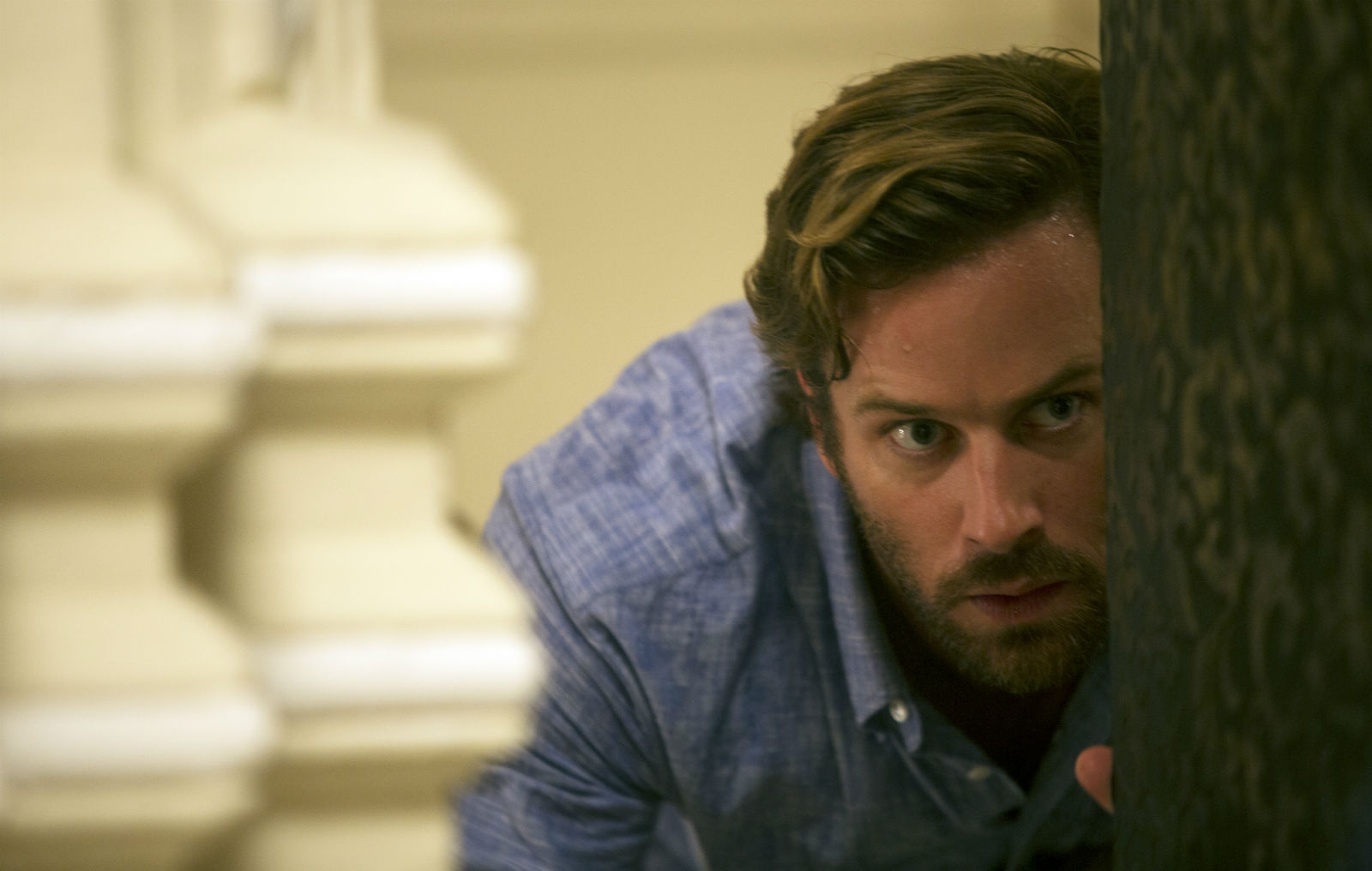Hotel Mumbai: Intense Docudrama Delivers Horror of Terrorism, Tropes of Disaster Pics
By Liam Lacey
Rating: B+
Hotel Mumbai, the first feature from Australian director Anthony Maras, is an unrelentingly intense docudrama about an Islamic terrorist attack in November 2008. The shooting and bombing assaults took place over four days — in a railway station, café and Jewish temple among other places — but the film focuses on the attack on the Taj Mahal Palace hotel, a century-old, domed Indo-Gothic landmark.
Inside the massive hotel, Maras’s film covers all the bases: upstairs and downstairs, inside and out, from the viewpoints of the privileged guests to the waiters, overwhelmed police, and the terrorists themselves.
Armie Hammer in Hotel Mumbai
The cast of characters, drawn from real life or lightly fictionalized, includes an American architect (Armie Hammer) and his Muslim Iranian wife (Nazanin Boniadi), a rough-edged Russian businessman (Jason Isaacs), a resourceful Sikh waiter (Dev Patel), and a famous chef (Anupam Kher).
Read our interview with Hotel Mumbai director Anthony Maras
The assailants, on a suicidal mission to attack the city, arrive by boat, under cell-phone guidance from a commander back in Pakistan called The Bull. After attacks on the train station and a local cafe, four of the assailants (Amandeep Singh, Suhail Nayyar, Yash Trivedi, Gaurav Paswala) head into the vaulted hotel lobby, shooting and tossing grenades.
For many hours, the men systematically kill staff and residents, at times knocking on doors and pretending to be room service before executing their victims.
Scenes alter between three main storylines. The young men are portrayed as pitiless killers, but also frustrated and afraid. As the staff work to hide surviving guests in a barricaded VIP ballroom, it becomes a question of how long they can hold out. In a separate story, the American father struggles to get back to the room to where a nanny cares for his infant child.
The set design, which recreates the arched rooms and narrow hallways of the hotel — combined with kinetic camera work and precise editing — create a you-are-there sense of chaos, explosive violence and confusion, but also raises a problem with the film. The craft of the re-enactment is more impressive than the script, which defaults to hackneyed dramatic moments, reminiscent of a generic disaster film, with its stock upstairs-downstairs tropes, young lovers, the cynic-turned-hero, and the dutiful subalterns showing courage above their pay grade.
This is not to claim that Hotel Mumbai is cynical, but the intended inspirational message — how humans from varied backgrounds can unite in courage and compassion — feels perfunctory. What stays are those numbing, appalling images, the kind that stream from the TV news into our nightmares, of gun-wielding men chasing desperate people, who are cowering and running for their lives.
Hotel Mumbai. Directed by Anthony Maras. Written by John Collee. Starring Dev Patel, Armie Hammer, Nazanin Boniadi, Tilda Cobham-Hervey, Anupam Kher, and Jason Isaacs. Opens wide March 29.

